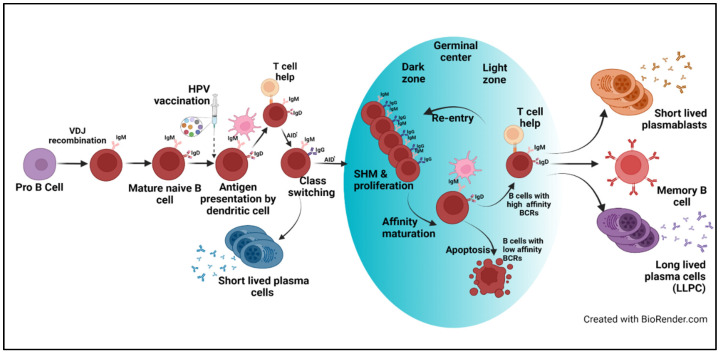Figure 1.
B cell activation, maturation, and proliferation upon exposure to antigens included in the HPV. Dendritic cells present HPV antigens included in the vaccine to naïve B cells. Binding to HPV antigens by B cell receptors results in B-cell activation and proliferation. Some B cells rapidly differentiate into plasma cells that secrete antibodies. B cells that receive additional signals from CD4+ T-follicular helper cells (TfH) express AID which is required for antibody class switching and somatic hypermutation (SHM) of antibody gene sequences. Germinal centers develop, containing activated B cells, activated TfH and dendric cells. It is in the light region of the germinal center that B cells compete for interaction with TfH, B cells with higher affinity receptors bind antigen and present peptides to TfH which in turn provide survival signals that promote further proliferation and continued SHM which takes place in the dark zone. B cells with low affinity receptors that do not receive survival signals undergo apoptosis. B cells can go through repeated rounds of SHM resulting in affinity maturation of the antibody genes, until cells exit as either short-lived plasmablasts, long-lived plasma cells, or memory B cells [Created with BioRender.com (Accessed from January to April 2022)].

